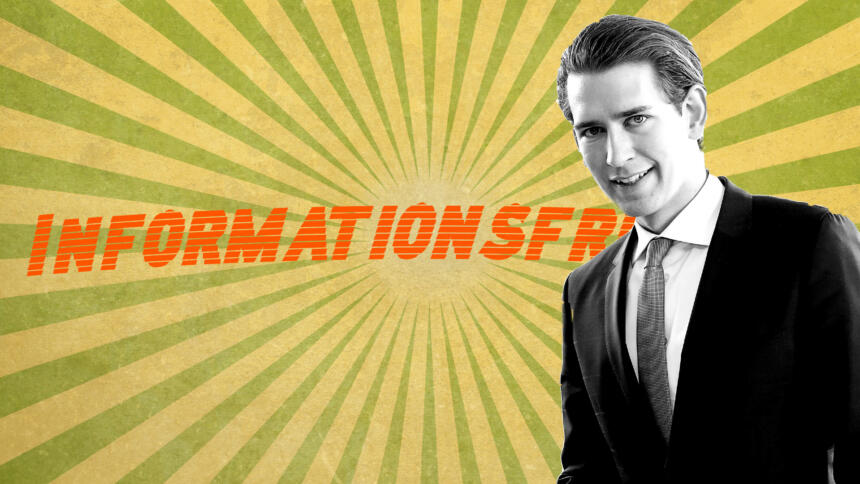Austria is last among EU countries in giving citizens access to public documents. To make the Austrian bureaucracy more transparent, the government has proposed to abolish a constitutional provision on official secrecy and to create a Freedom of Information law.
But the draft law has significant shortcomings according to Helen Darbishire and Rachel Hannah with the NGO Access Info in Madrid. They have sent the Austrian parliament a detailed list of weaknesses. In conversation with netzpolitik.org, they explain how Austria can improve the draft – and how a better law could help to fight maladministration and corruption in government.
netzpolitik.org: Your organization has pushed for public access to information in most European countries, so you know which laws work and which do not. Austria already has a law that provides for access to public information, but transparency advocates have complained for years that it is weak. Will the new law, as drafted, be able to change that?
Rachel Hanna: We do welcome this new draft. In our international ranking of freedom of information laws the current Austrian law has 33 points out of 150, and the new one has only gone up to 57. So while there is an improvement, there are still loopholes and weaknesses that need to be addressed.

Helen Darbishire: With the minor changes that you’re facing right now, and without the sort of resources of a specialised oversight body which is mandated to do training and awareness raising, I think that you’re not going to change the situation very much, unfortunately. That is the reality.
netzpolitik.org: In many countries, the freedom of information law states that to apply an exception on grounds such as security or privacy, the authority has to demonstrate that disclosure will cause harm and that there is no overriding public interest in disclosure. Was that provided for in the Austrian draft law?
Rachel Hanna: Even though the draft says that there has to be a harm test and a public interest test in the explanatory notes, they’re not actually stated in the law. I think that would be a big hurdle in day to day use of the law. If the actual black and white law doesn’t say that there’s a harm and public interest test, it may not be applied in practice. So that is a huge weakness.
Another weakness is that there’s no information commissioner under this law. That means that any appeals against refusals have to be judicial appeals, which, as we see in practice, is longer and can cost more. Without an information commissioner, most people probably can’t defend their right in a free and more accessible manner.
Helen Darbishire: It’s unusual for Austria not to introduce an information commissioner. It definitely is not the trend of recent access to information laws in other European countries.
Rachel Hanna: Another weakness of the law is that the definition of information is open to very narrow interpretation, as it is related to the “sphere of activity” of a particular institution. An access to information law should be applicable to all material held by a public institution, subject to internationally accepted exception. Also, it mandates proactive publication of certain information and that there is to be a central registry, but the draft says it applies only to information of general interest and does not go into much specificities of what should be published. It does mention contracts of over 100,000 euros, but thresholds in other European countries tend to be much lower than that. That opens the door to hiding a lot of public spending.

netzpolitik.org: In your experience, what does the way the Austrian law is currently drafted mean for journalists and civil society groups that want to use it?
Rachel Hanna: One thing is having a good law written so that journalists can use it to back up their right to information. Another thing is having a culture where the law is actually properly applied. On the culture side of it, this law, apart from not having an information commissioner, it doesn’t say anything about the promotion of the right, training or anything like that, so that governmental bodies know what their actual obligations are.
And then on the practical side, I would say that the judicial element of appeals would put off a lot of journalists. Another thing is the lack of grounds for appeal. If you can only appeal for a refusal but not against administrative silences or the type of format that your information was given to you, that can also be a practical barrier to access.
netzpolitik.org: Austria recently saw a series of corruption allegations against senior members of government. Some have suggested that the litmus test for the future will be the extent to which FOI law will help to investigate such scandals. How much use is the draft law in that respect?
Rachel Hanna: To be honest, it hasn’t really improved all that much from the original law of 1986. If they really want to make a change, there is an internationally accepted access to information law that Austria could implement, the Council of Europe’s Tromsø Convention on access to official documents. As Helen was saying, only having judicial appeals is something you might see in old laws. This doesn’t match up to a 2021 access to information law.
„A much stronger law would help in eliminating corruption“
netzpolitik.org: We should think of the Austrian draft law as kind of retro?
Helen Darbishire: Yes, very retro indeed. However, about journalists expectations of what they can get in the midst of a breaking scandal, you know, getting the documents which confirm that a person is corrupt is difficult usually.
A journalist might receive a tip off about some scandal. But the farther the requests get, all the evidence which confirms it can disappear because people are good at hiding information. If officials know that the scandal was breaking, they can destroy documents. This of course should be illegal and sanctioned. Sanctioning the destruction of documents and also the failure to do proper record-keeping – there are lots of things that could be in a much stronger law which would help in eliminating corruption.
What a good transparency regime would do is significantly reduce the space in which corruption can occur in the first place. So you can point to your scandals and say, if we had our public procurement contracts open and if we had these spending documents and if we could see how these decisions have been taken, which we currently can’t see and we won’t be able to because the transparency regime is not strong enough, then we could avoid these kinds of scandals, we can stop them happening in the future. And that’s the kind of way in which you can use a scandal to try to get a stronger access to information law.
„Austria has an obligation to transparency“
netzpolitik.org: You mentioned the Tromsø Convention earlier – I think not a lot of people in Austria have heard of it. Could you briefly summarize for an Austrian audience why the convention is an important template to be considered? Why should Austria sign it?
Helen Darbishire: Because you’re in a moment historically where you’re trying to show that you’re being transparent, so it is about signing up to a convention, a human rights convention in your region, which itself states that it’s a minimum standard. I mean, it makes no bones about it. The convention clearly states this is a minimum standard convention, so Austria should be able to sign it or else it’s admitting that it’s going below the minimum standards. Austria could do this and make sure at least your exceptions regime is in line with the convention, with a harm or public interest test for every exception.
Also, I think that the weaknesses in this law, like the lack of harm and public interest tests linked directly to the exceptions, is something that doesn’t fly under the jurisprudence of the European Court of Human Rights. Any limitation on the right to information has to be demonstrated to be proportionate and necessary in a democratic society. Austria has an obligation to transparency under the international human rights conventions.
netzpolitik.org: Are you saying that Austria opens itself up to court challenges for its lack of transparency?
Helen Darbishire: Well, there already has been a case against Austria from a few years back. The court actually said they were surprised that the information wasn’t published proactively already.
The case was about an NGO that asked the regional government of Tyrol for information about land ownership to study the impact of property transfers on agricultural and forest land. The European Court of Human Rights found that Tyrol’s refusal to provide that information was a violation of Article 10 of the European Convention of Human Rights, the right to freedom of expression and information.
Also, the Council of Europe’s anti-corruption body GRECO did a report on Austria a couple of years ago, which does include references to the fact that Austria doesn’t have a proper access to information law. International bodies have pointed out to Austria not only that its transparency from a pure access to information perspective is not meeting international standards, but also the value of openness for fighting corruption is not up to scratch.
This is important, for instance, if you want to make sure that there is no corruption in the spending of the EU recovery funds. If you want to make sure that there’s proper oversight of the green transition and the way that money is spent on that, then you need transparency instruments because there is going to be a lot of money flowing into a lot of European countries right now. Nobody wants to see that money being siphoned off by organiz eed crime or going to waste, so transparency is absolutely key at this historical moment. That’s an argument as to why they should be pushing for a higher standard.
netzpolitik.org: Austria has had official secrecy and a very closed-off administrative culture for many years. Is that likely to change, even if there is a better law?
Helen Darbishire: It’s about the strength of what you put in place. Take the example of the UK – it used to have the Official Secrets Act, it was such a closed country. In 1984, the Campaign for Freedom of Information got started. The UK’s Freedom of Information Act came into force on January 1st, 2005. It was one of the longest freedom of information campaigns in history. And it was really hard because you had to shift that culture. You need to make an effort to change it.





0 Ergänzungen
Dieser Artikel ist älter als ein Jahr, daher sind die Ergänzungen geschlossen.